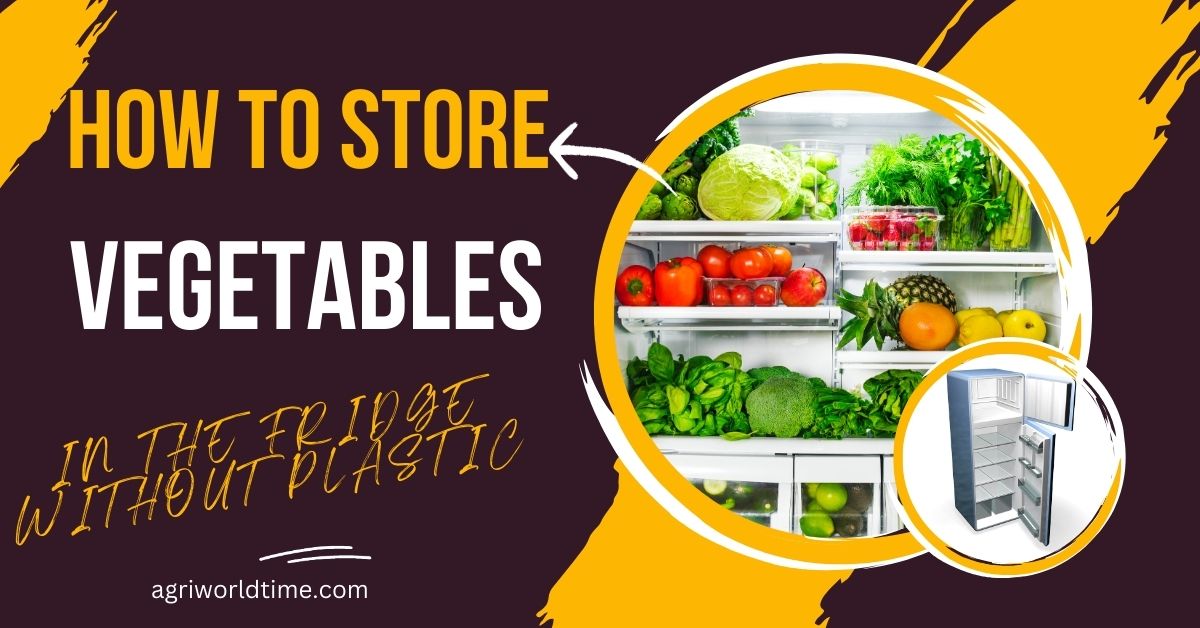In today’s environmentally conscious world, reducing plastic usage is a top priority for many. One significant area where plastic usage can be minimized is in the way we store our vegetables in the fridge. This article explores various eco-friendly methods to store vegetables without relying on plastic containers or bags. Not only will these methods help reduce plastic waste, but they’ll also keep your veggies fresher for longer.
Table of Contents
Introduction
The environmental impact of plastic waste is undeniable. One small but significant change we can make is to find alternatives for storing our vegetables in the fridge. This article will guide you through various methods and tips to store vegetables without relying on plastic.
The Problem with Plastic
Plastic containers and bags, while convenient, contribute to pollution and harm the environment. They also have the downside of not allowing your vegetables to breathe, leading to premature spoilage.
Preparing Your Vegetables
Before storing your vegetables, it’s essential to prepare them properly. Wash, peel, and chop them as needed. This step makes it easier to grab and use them when you need them.
Eco-Friendly Storage Options
Using Glass Containers
Invest in glass containers with airtight lids. These are excellent for storing chopped or whole vegetables and keeping them fresh.
Reusable Silicone Bags
Reusable silicone bags are a fantastic alternative to plastic ziplock bags. They are sturdy, seal well, and can be used repeatedly.
Cloth Produce Bags
Cloth produce bags allow your veggies to breathe while keeping them organized in the fridge. They are washable and reusable.
Proper Storage Techniques
Temperature Matters
Different vegetables have different temperature requirements. Some prefer cooler temperatures, while others do better at slightly higher ones. Understanding these preferences is crucial for keeping your veggies fresh.
Humidity Control
Maintaining the right level of humidity is vital. Some vegetables thrive in high humidity, while others prefer lower humidity levels. Adjusting humidity drawers in your fridge can help.
Ethylene Management
Ethylene is a gas produced by some fruits and vegetables that can accelerate ripening. It’s essential to keep ethylene-producing and ethylene-sensitive items separate to prevent premature ripening and spoilage.
Creative Alternatives
Wrap in Beeswax Wraps
Beeswax wraps are an eco-friendly option for wrapping individual vegetables or covering bowls. They are reusable and can be shaped to fit your produce perfectly.
Store in Cloth Towels
Wrap your veggies in damp cloth towels to maintain moisture and freshness. This method is especially effective for leafy greens and herbs.
Employ Vegetable Storage Boxes
Consider investing in vegetable storage boxes designed to keep different types of produce at their ideal humidity levels. These boxes can extend the lifespan of your vegetables.
Tips for Organization
To ensure that your eco-friendly storage efforts remain practical and organized, label containers and regularly check for any spoiled items. This will help reduce food waste and keep your fridge tidy.
Sustainability Benefits
By reducing your plastic usage in the kitchen, you’re not only contributing to a cleaner environment but also setting a sustainable example for others. Every small change counts towards a greener planet.
Saving Money While Saving the Planet
Switching to eco-friendly vegetable storage options may require an initial investment, but it pays off in the long run. You’ll save money by reducing food waste and using durable, reusable containers.
Conclusion
Storing vegetables in the fridge without plastic is a sustainable choice that benefits both the environment and your wallet. By following the tips and methods outlined in this article, you can take a significant step towards a greener and more eco-friendly kitchen.
FAQs
Q1: Can I use regular glass containers for vegetable storage?
Yes, you can. Just make sure they have airtight lids to keep your veggies fresh.
Q2: Are silicone bags easy to clean?
Yes, they are. Most silicone bags are dishwasher-safe, making cleaning a breeze.
Q3: How do I control humidity in my fridge drawers?
Most fridges have humidity controls in their drawers that you can adjust to suit your needs.
Q4: What vegetables produce ethylene gas?
Fruits like apples, bananas, and avocados, as well as vegetables like tomatoes and peppers, produce ethylene gas.
Q5: Are vegetable storage boxes worth the investment?
Absolutely. They can significantly extend the shelf life of your vegetables and reduce food waste.

